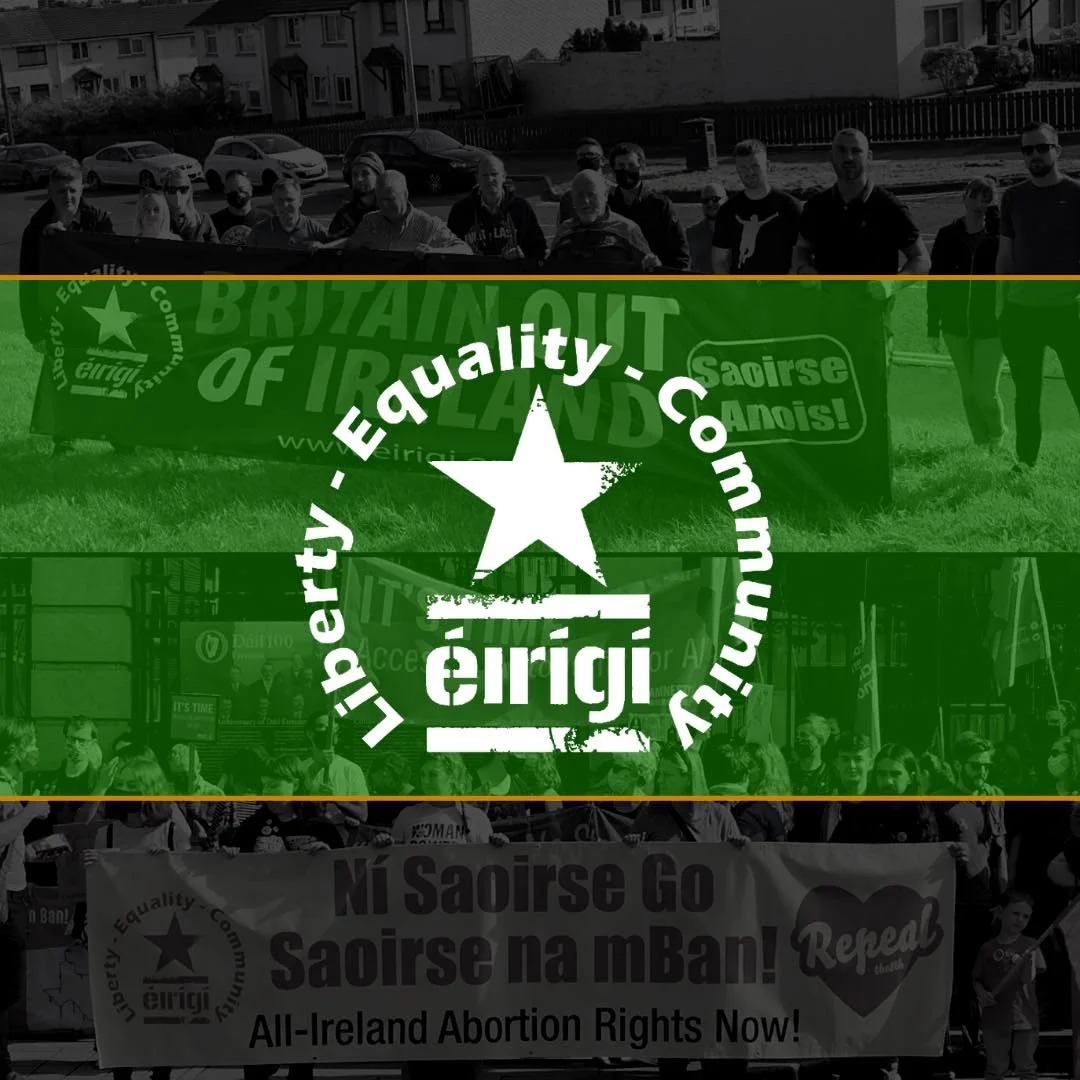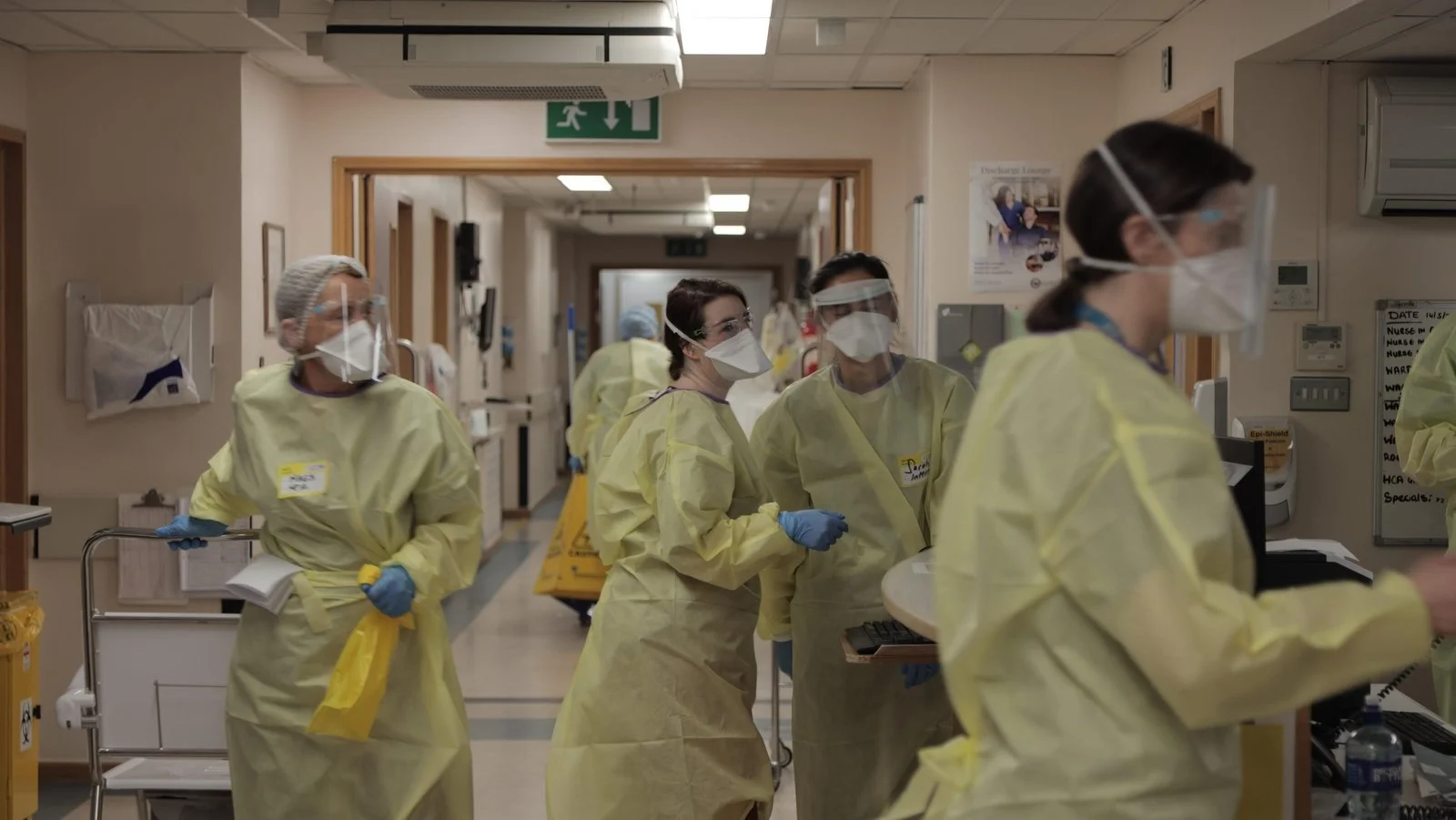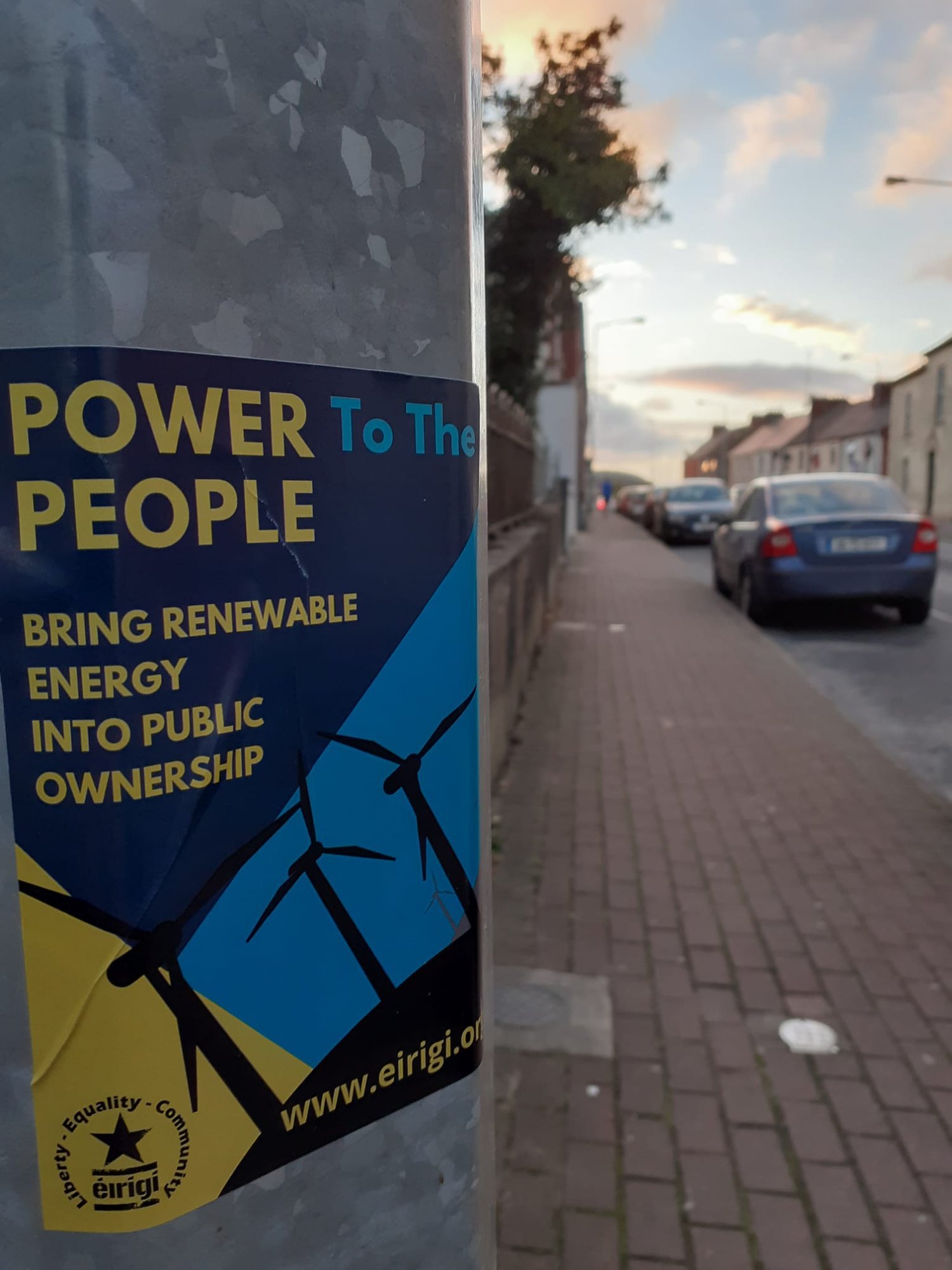Éirígí For A New Republic - New Year Statement 2022
As 2022 dawns, Éirígí For A New Republic thanks its members and supporters at home and abroad for their ongoing contribution to the struggle for a new all-Ireland Republic. Your activism over the last twelve months has advanced the cause of Irish freedom and prepared the ground for further advances in 2022 and beyond.
The coming year will see Ireland enter the final phase of a decade of centenaries which began with the centenary anniversary of the 1913 Lockout in 2013. This final phase will be dominated by the 100th anniversary of the start of the Irish counter-revolution, an event that is routinely and less accurately referred to as the Irish civil war.
The impact of the Irish counter-revolution on the development of modern Ireland cannot be over-stated. Indeed, it is impossible to understand the Ireland of 2022 without first understanding the nature of the counter-revolution that began in 1922.
The forces behind that counter-revolution began to come together in the aftermath of the signing of the 1921 Treaty. Ultimately its ranks included the most conservative, wealthy and powerful elements of Irish society in the Twenty-Tix County area, including the landed gentry, the indigenous Irish capitalist class and the Catholic Church.
These long-standing anti-republican elements aligned themselves with the minority of active republicans who supported the 1921 Treaty as part of a successful strategy to shatter the Irish revolutionary movement and to ensure that the newly emergent Twenty-Six County state would offer no threat to their respective wealth, power or status.
Counter-revolutionary forces attack the republican-held Four Courts, Dublin, June 1922
Supported and armed by the British government, the counter-revolution went on an all-out offensive against the Irish republican movement in June 1922. Within twelve months, the counter-revolution had secured a definitive military victory over those who had remained loyal to the Republic of 1916.
The counter-revolution, however, did not end in May 1923. In the years and decades that followed the conservative forces that supported the 1921 Treaty were rewarded for their loyalty. The Twenty-Six County state did not only protect their interests, it enshrined the protection of those interests into the laws, constitution, institutions and modus operandi of the state - a reality that remains true to this day.
The radical, confident vision of the 1916 Proclamation and the 1919 Democratic Programme -- of public ownership, of the common good, of economic democracy -- were abandoned and replaced by something closer to a pro-capitalist theocracy than a true Republic.
In the Six Counties too, a dystopian state designed to protect the interests of capital and the status quo emerged. Like its southern counterpart it used religion and sectarianism as a means of social manipulation and political control.
Despite all of the promises that were made by both sides during the Treaty debates, the nationalist community in the Six Counties was completely abandoned by the Twenty-Six County political establishment -- left to endure exclusion and privation in an apartheid statelet in their own country.
The body of Jackie Duddy is carried by fellow citizens after he was murdered by the British Army in Derry on Jan 31st, 1972
In the late 1960s that oppressed nationalist community began to campaign for the most basic of civil rights, a campaign that was initially met with the batons of the RUC and ultimately with the bullets of the British Army.
January 31st, 2022 will mark the 50th anniversary of the Bloody Sunday Massacre, when British paratroopers murdered 14 civil rights protesters and injured many more on the streets of Derry -- a pivotal moment in Irish history that cannot be separated from partition, the counter-revolution or the abandonment of the nationalist community by the southern political establishment.
Éirígí stands with the victims of the Bloody Sunday Massacre and with all others who died or were injured at the hands of Britain’s official forces or unofficial death squads.
The British government's proposed amnesty for all former British combatants is just the latest attempt to cover up Britain’s dirty war in Ireland. It cannot and will not succeed in airbrushing Britain’s crimes from the pages of history.
All frontline workers deserve decent wages and working conditions and not just rounds of applause
Much of 2021 was again defined by the battle against the Covid-19 virus. Despite the opportunistic, confused and often contradictory ‘leadership’ emanating from Leinster House, Stormont and Westminster, frontline workers have continued to provide healthcare and other vital services throughout the pandemic.
Éirígí takes the opportunity of our New Years Statement to again thank these frontline workers, many of whom are low-paid, for the work that they do. Like them we note that the rounds of applause of the early phases of the pandemic were not followed by deserved pay rises and improved conditions of employment.
The pandemic continues to highlight the devastating impact of decades-long under-funding of public health services by successive Dublin and London governments. In the Twenty-Six Counties the chronic shortage of critical care capacity, in particular, has shaped the state’s entire response to Covid-19, leading to greater levels of restrictions and counter-measures than might otherwise have been required.
Despite all that has happened since March 2020, the Dublin government disgracefully continues to block meaningful change to the healthcare system, a fact borne out by the mass resignations from the Sláintecare advisory council earlier this year.
The pandemic has also brought the role and influence of private pharmaceutical corporations into sharp focus. While right-thinking people saw Covid-19 as a catastrophe for humanity, Big Pharma saw it as an opportunity to generate super-profits from vaccines and treatments.
The case for a transnational not-for-profit approach to the research and production of pharmaceuticals for not only Covid-19, but all illness and medical conditions, has never been stronger.
In 2022 and beyond, Éirígí will continue to advocate for the creation of a single-tier, publicly-funded, not-for-profit, all-Ireland healthcare system, understanding that it alone can deliver efficient, high-quality healthcare for all.
Éirígí Vultures Out protest, Dundrum, May 2021
The legacy of the counter-revolution of a century ago continues to manifest itself today in many forms, perhaps most dramatically so in the state’s response, or lack of response, to the current housing crisis.
A state and political system that was created to protect the interests of the men of property has neither the interest or ability to challenge the mastery of the land speculators, property developers banker, landlords, estate agents and other assorted parasites who have accumulated vast wealth from the current approach to housing.
That challenge will have to come from outside of the state, outside of the political establishment, outside of the official opposition and outside of Leinster House and Stormont. The challenge will have to come directly from the people of no property, organised in an effective housing justice movement.
Since 2016 Éirígí has championed the call for a new system of Universal Public Housing, knowing it alone has the potential to not only end the housing crisis, but also end the nefarious reign of the housing parasites and the gombeen politicians that facilitate them.
Power To The People will be one of Éirígí’s two primary campaigns in 2022
The legacy of the counter-revolution is also clear to be seen in how the political establishment is approaching the twin challenges of climate change and energy security. As with virtually every other area of public life, they have turned to the private sector for solutions, gifting Big Energy access to Ireland’s vast wind energy potential. This approach is doomed to failure and will not deliver a low-carbon economy, energy security or low-cost energy.
Through our ‘Power To The People’ campaign, Éirigí is calling for a radically different approach that would see the state taking direct control of Ireland’s renewable energy resources and infrastructure. In 2022 we intend to intensify that campaign and the fight for a just transition to a low-carbon future.
In April 2021, Éirígí celebrated the fifteenth anniversary of the party’s foundation in 2006. Over that time Éirígí has established itself as a permanent fixture on the Irish political landscape, consistently delivering a coherent socialist republican analysis of the challenges facing Irish society and putting forward credible solutions to those challenges.
And beyond that theoretical contribution, Éirígí activists have delivered on practical real-world campaigns in their communities and at a national level for more than fifteen years.
Éirígí activists take part in direct action against the Shell takeover of the Corrib Gas Field in 2006
From defending Ireland’s natural gas, water and wind resources to fighting for reproductive rights for women - from supporting the Irish language to pushing back against austerity - from opposing British royal visits to supporting workers in struggle - from highlighting the vulture takeover of housing to building support for UP Housing - from promoting a deeper understanding of Irish history to building support for Irish reunification - from demonstrating international solidarity to defending vital public services, Éirígí activists have been imbedded in virtually every progressive campaign since 2006.
All of this has been achieved without any major financial support from the state or other sources and in the face of overwhelming hostility from the state and private corporate media.
The need for a disciplined, revolutionary Irish republican party is as great now as it has been at any point in Irish history. Éirígí has shown itself to be resilient, adaptable and capable of continuous recruitment over a significant period of time - all prerequisites for the building of the type of revolutionary party that Ireland needs.
Today, as a new year begins, we invite those who share our analysis and values to give serious consideration to joining Éirígí For A New Republic.
If you’re ready to join the fight for a New Republic you can do so here.







